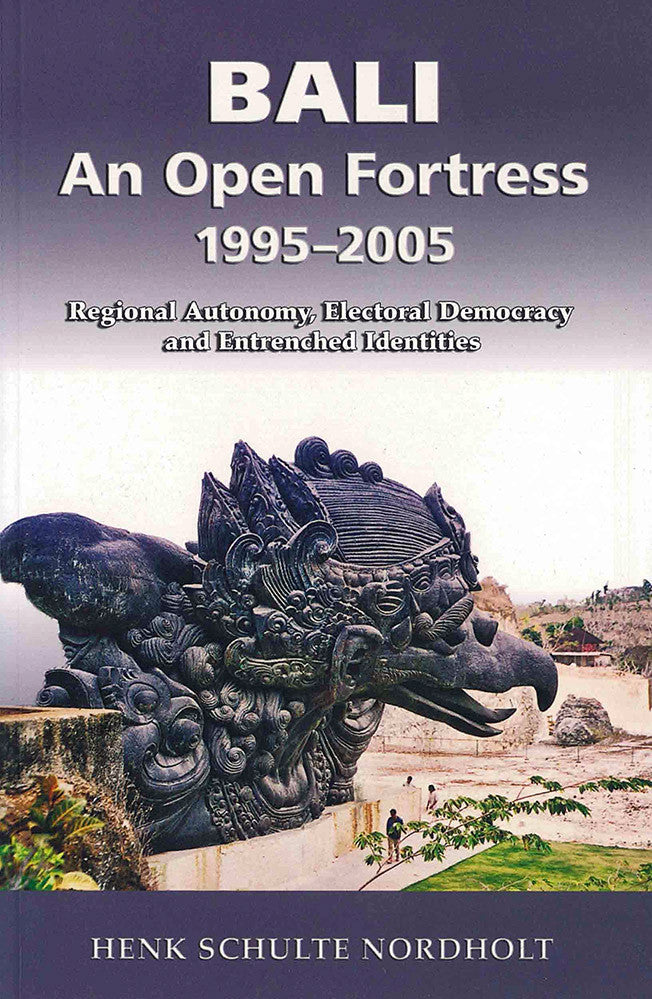Bali - An Open Fortress, 1995-2005: Regional Autonomy, Electoral Democracy and Entrenched Identities
$22.00 SGD
Long portrayed as a cultural safe haven, the Indonesian island of Bali is facing fundamental challenges as the political, religious and economic landscape changes. The book investigates the effects of decentralization and democratization on Balinese politics, and looks at the role played by urban intellectuals in reinforcing Balinese identity.
Bali needs the outside world (tourists, capital, cheap labour) but the island s people feel threatened by outside forces (powerful investors, Western decadence, Islam). Henk Schulte Nordholt characterizes it as an open fortress, accepting external influences while struggling to protect itself from them. In this book he investigates how Indonesia's reformasi has affected caste relationships and is reshaping power relations at the provincial, district and village level. While his work highlights the role of criminal gangs and violent conflicts at the local level, he also considers the promised offered by local democracy.
Henk Schulte Nordholt is Head of Research at the Royal Netherlands Institute of Southeast Asian and Caribbean Studies (KITLV) in Leiden, and Professor of Indonesian History at Leiden University. He is also one of the editors of Locating Southeast Asia: Geographies of Knowledge and Politics of Space.
Publication Year: 2007
120 pages, 211mm x 137mm
ISBN: 978-9971-69-375-6, Paperback
NUS Press

